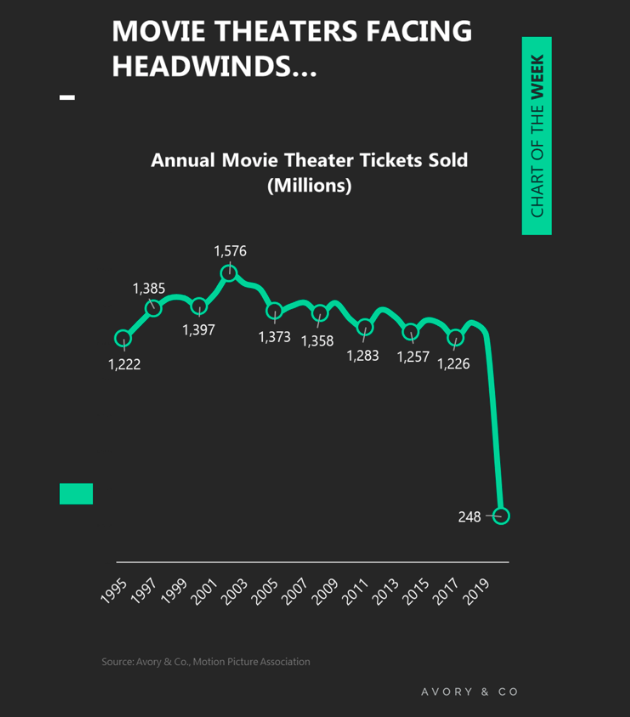“Companies rarely die from moving too fast and they frequently die from moving too slow” – Reed Hastings
A popular activity among consumers is going out and watching movies in theaters. However, the rise of streaming services has posed a threat to the industry resulting in steadily declining foot traffic over time. Even then, it wasn’t until the recent pandemic that annual movie theater ticket sales became significantly impacted.
Prior to the pandemic, the number of movie theater tickets sold hovered around 1.2 billion tickets per year. This year, following nationwide shutdowns amid COVID-19, movie theaters have seen ticket sales plummet to 248 million.

What’s In Store for Theaters?
Studios provide theaters with content to exhibit, but with few releases until next year, many theaters have little to offer. Companies like Regal Cinemas hav announced nationwide closures given the scarcity of content, while AMC – although largely reopened – continues to face obstacles.
Digital services have exacerbated this by enabling studios to circumvent theaters altogether. Disney+ NYSE: DIS recently released Mulan directly to Premium Video On-Demand (PVOD), skipping a theatrical release. AMC went from having a 60-90 day window of exclusivity to just a 17-day window with releases from Universal Studios.
Streaming services like Netflix NASDAQ: NFLX have approached content distribution in a different manner. As opposed to windows of exclusivity, they offer libraries with an abundance of content for a monthly subscription. It’s interesting to think about how the landscape will change, and what it will look like once the dust settles.
Twitter: @_SeanDavid
The author or his firm have positions in mentioned securities at the time of publication. Any opinions expressed herein are solely those of the author, and do not in any way represent the views or opinions of any other person or entity.








